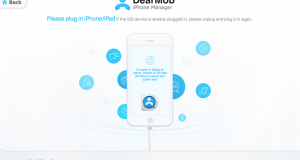
Priti Patel, the home secretary, and Continued on page 2, col 3 Although experts said that the data did not prove where people were catching the virus, it showed the need to stop transmission in shops. The next most common location was secondary schools on 12 per cent. The analysis of NHS Test and Trace data showed that more than 18 per cent of those who had contracted the virus had visited a supermarket in the preceding days. A Public Health England study last November showed that supermarkets were the most frequent common exposure setting for those catching the coronavirus in England. 6 Nearly half of head teachers in England have had to create priority lists for the children of key workers because demand is so high, a survey indicates. 6 NHS bosses criticised private hospitals and doctors in London for not cancelling non-urgent operations. 6 Before the opening today of the first mass vaccination centres, Matt Hancock, the health secretary, promised that every adult in Britain would be offered a jab by the autumn. The seven-day average death toll was up 48.9 per cent on last week. The number of deaths within 28 days of a positive test was 563, bringing the total fatalities to 81,431. Number of people in stores at one time, and that all customers are wearing masks.” In other developments: 6 There were 54,940 new cases of coronavirus in Britain yesterday, with the seven-day average up 14 per cent on the previous week. “So we’ll be looking at whether all the right protections are in place - including ensuring social distancing is being followed, that one-way operations are in place, that there are limits on the “We need to make sure supermarkets in particular are following the rules given this is one of the few places where you still see people from different households in the same indoor space,” the source said. The rules on shopping stop short of formal legislation, but a government source said that retail bosses were being put on notice that this would change without improved compliance. This will focus on retail and the exemption to the government’s “stay at home” order that allows people to exercise once a day. Ministers had agreed earlier to toughen enforcement of the rules amid fears that poor compliance will mean the lockdown failing to bring infection rates under control. He was speaking at a meeting to review attempts to prevent the service from being overwhelmed as the number of hospital patients with Covid-19 in England passed 30,000 for the first time. Boris Johnson told senior ministers last night that the situation in the NHS was “parlous and perilous”. Supermarkets face being legally required to enforce mask wearing and social distancing as part of a wider crackdown on compliance with the lockdown. Shops told to get tough on the Covid rule-breakers Crackdown as Johnson says NHS in parlous state Francis Elliott Political Editor Kat Lay Health Editor There needs to be a regulatory Continued on page 2, col 5 OLIVER DIXON But that absolutely means now that we need to say, ‘Is it right that we leave these decisions to people like Mark Zuckerberg?’ It shouldn’t be left to them.

In their decision to close down Donald Trump’s accounts because he’s inciting an insurrection that led to violence and death. “Their systems promote, recommend and rank content so they’ve never been neutral.

“But they’ve always taken editorial decisions, mainly through their algorithms,” he added. The Tory MP Damian Collins said Mr Hancock was right that social media companies had taken editorial decisions over Mr Trump’s account. It is obviously one for the culture secretary, but as a formerĬulture secretary I think it does lead to very interesting questions about the role of social media and the role of the social media companies in the decisions, in the editorial decisions that they take.” The government announced last month that Ofcom would be given powers to investigate social media companies under the Online Harms Bill, which is due to be debated this year. Speaking to Sophy Ridge on Sunday on Sky News, he added: “And that is a very big question because then it raises questions about their editorial judgments and the way that they’re regulated. Mr Hancock, the health secretaryĪnd a former culture secretary, said yesterday that the move showed they were “taking editorial decisions”. Twitter, Facebook and Instagram blocked Mr Trump’s accounts after his supporters stormed the US Capitol last week. The decision by social media giants to ban President Trump raises a “very big question” over how they are regulated, Matt Hancock has said. Trump’s ban prompts questions over social media regulation Jack Malvern The Game Leeds knocked out of FA Cup by Crawley £2.20 £1.10 to subscribers (based on 7 Day Print Pack)


 0 kommentar(er)
0 kommentar(er)
